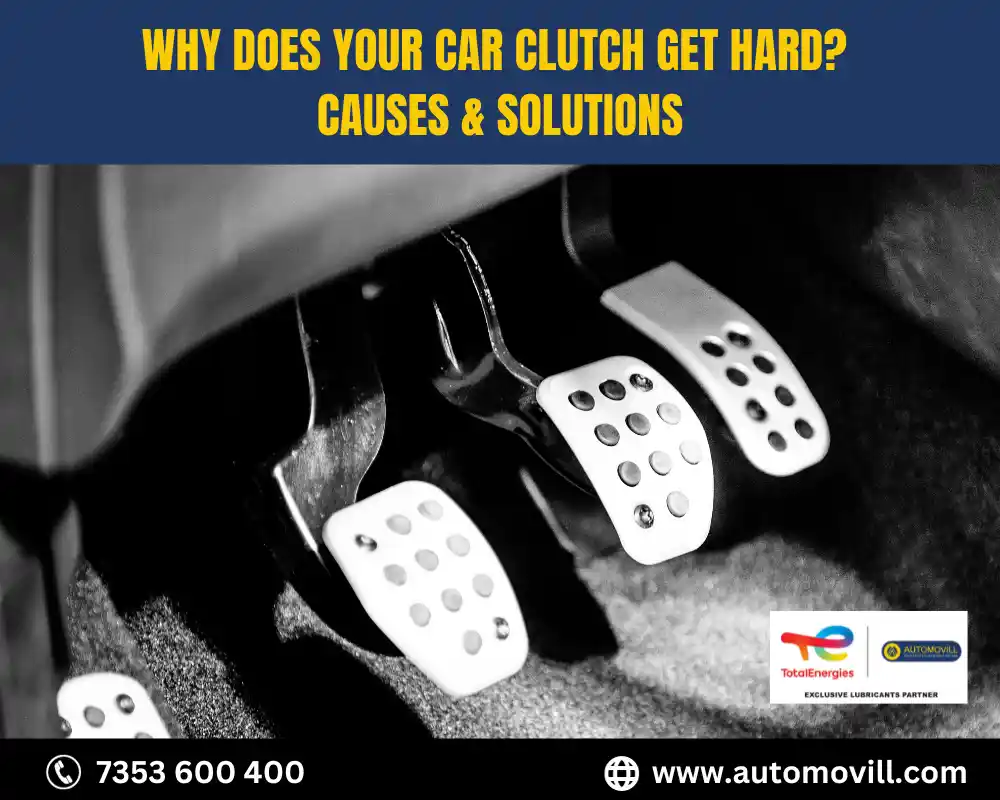
A smooth and responsive clutch is essential for a seamless driving experience. However, if you find your car’s clutch pedal becoming increasingly hard to depress, it can be frustrating and even lead to difficulties while shifting gears.
In this blog post, we’ll explore the common causes of a hard clutch and provide practical solutions to get your clutch operating smoothly again.
Causes of a Hard Clutch
1. Worn Clutch Disc
Over time, the friction material on the clutch disc can wear out, making it difficult to engage and disengage the clutch. This is a common cause of a hard clutch.
2. Clutch Cable or Hydraulic System Issues
- Worn Clutch Cable: If your vehicle has a cable-operated clutch, a worn-out or frayed clutch cable can result in a stiff clutch pedal.
- Hydraulic Fluid Leak: In cars with hydraulic clutches, a leak in the hydraulic system can lead to a lack of fluid, causing a hard clutch pedal.
3. Clutch Linkage Problems
- Misadjusted Clutch Linkage: Incorrectly adjusted clutch linkage can cause the clutch to engage improperly, making the pedal feel stiff.
- Broken Linkage Components: Broken or damaged linkage components can also result in a hard clutch.
4. Worn Clutch Release Bearing
The release bearing, or throw-out bearing, can wear out over time, leading to increased resistance in the clutch pedal.
5. Pressure Plate Issues
A damaged or malfunctioning pressure plate can cause the clutch to engage unevenly, resulting in a hard pedal.
How to Fix a Hard Clutch?

- Clutch Replacement: If your clutch disc is worn out, replacing it along with the pressure plate and release bearing is often necessary to restore smooth clutch operation.
- Clutch Cable Replacement: For cable-operated clutches, replacing the worn clutch cable can eliminate stiffness in the pedal.
- Hydraulic System Inspection and Repair:
- Check for Leaks: Inspect the hydraulic system for leaks and repair any damaged lines or components.
- Fluid Replacement: If necessary, flush and replace the hydraulic fluid to ensure proper clutch engagement.
- Clutch Linkage Adjustment: Correctly adjust the clutch linkage to ensure the clutch is disengaging fully and smoothly.
- Release Bearing Replacement: If the release bearing is worn or damaged, replacing it can often resolve the stiffness issue.
- Pressure Plate Replacement: If the pressure plate is faulty, replacing it is essential to ensure even clutch engagement.
- Regular Maintenance: To prevent future clutch problems, maintain your vehicle by following the manufacturer’s recommended service intervals.
Revive Your Drive: Unlock Smooth Shifting Today!
Don’t let a stiff clutch pedal slow you down.
Now that you’ve discovered the root causes and effective solutions for a hard car clutch, it’s time to take action.
Experience the joy of smooth gear shifts and effortless driving by addressing these issues today.
Ready to reclaim your driving pleasure?
Contact our expert mechanics and schedule a clutch inspection and repair.
Don’t wait until the problem worsens; act now to enjoy a smoother, more enjoyable driving experience.
Take the first step towards clutch perfection – Schedule your repair now!
